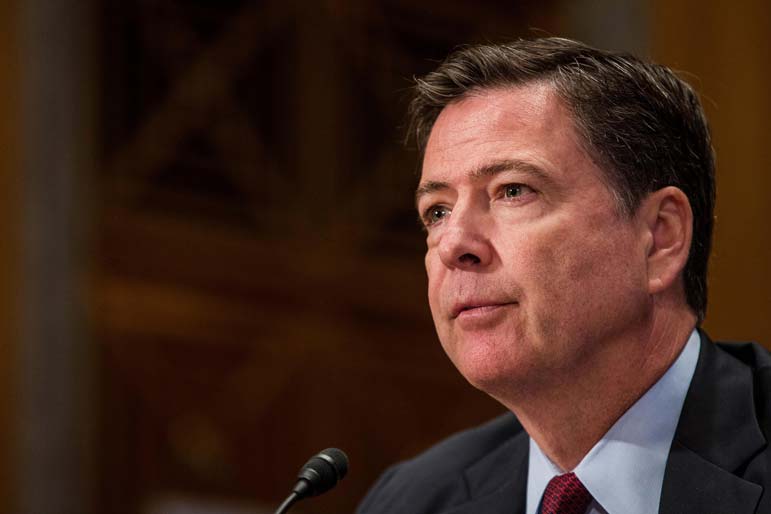 Zach Gibson / Bloomberg
Zach Gibson / Bloomberg
Donald Trump's firing of FBI Director James Comey was aimed at thwarting an investigation into the president possibly colluding with Russians to defeat Hillary Clinton in the past election, say hypocritical Democrats with applause from others.
It's a nonsensical thesis.
The firing will intensify the investigation, and not just because any tricks would immediately result in calls for impeachment.
After all, career prosecutors and investigative agencies did not lose their jobs. They are honest people who want to do the right thing, they know everyone will be watching what happens and their superiors would be downright foolish to rush in with interventions. In Washington, with an issue as fiery as this one, the truth would get out and the repercussions would be fierce.
The firing actually makes Trump's situation tougher than it otherwise would have been.
Should the FBI find no evidence of collusion -- and so far, there is none that has seen daylight -- wide swathes of doubters would be that much more likely to insist a whole lot of lying is going on.
It's interesting, of course, that the very same people who have been castigating Comey daily and often arguing he ought to go are the ones now saying, oh, dear, why would anyone do this vile thing. The answer is that Trump was subject to the precise reasoning of Deputy Attorney General Rod Rosenstein, an expert legal hand applauded on both sides of the aisle as a man of unimpeachable integrity.
In a letter quickly sent Trump's way, he wrote that Comey broke with the clear meaning of the law by deciding himself not to prosecute Clinton for her email transgressions as secretary of state. It was particularly objectionable that he held a press conference to discuss the case. Then, he was at it again when he said in a letter to Congress that he was starting up the investigation once more.
In short, Rosenstein said, Comey had made it impossible for the FBI to be a trusted agency as long as he was in charge.
But wait, anti-Trump zealots say, the timing of the firing is what was awful.
We right now have grand jury proceedings about Russian money having been given to Michael Flynn, for a short period Trump's national security advisor, and the FBI is probing how Russia might have influenced the 2016 election. The obvious answer is that the timing was absolutely appropriate, seeing as how Comey was still going around undercutting himself by defending himself and had just recently made a highly reported, self-serving blunder in testimony before Congress. Another hearing is coming up, but there are plenty who can take Comey's place.
An irony in all of this is that Clinton recently said she was herself responsible for the outcome of the 2016 election even though she wasn't. She put a lot of the blame on Comey, although he initially saved her by not allowing her prosecution as many thought should have happened.
He almost undoubtedly did damage her campaign at least some when he reopened the investigation, making everyone think something major had been discovered. What he did not do was instruct her to carry out her inexcusably careless email deeds in the first place and to then dodge her way out of full-fledged responsibility.
The question now is what comes next, and here is the absurdity of the moment: the Democrats' call for a special prosecutor when there is not yet anything close to a case to prosecute.
Even if there were, special prosecutors have proven themselves especially inept by way of insisting on prosecution no matter what justice requires.
President Trump is himself inept, of course, and he fumbles almost everything he does in one way or another, as in peculiarities included in the letter he wrote on firing Comey. But much of what's going on right now -- such as calling this another Watergate -- is politically inspired, irrationally contrived histrionics.
Jay Ambrose(TNS)
Comment by clicking here.
Jay Ambrose, formerly Washington director of editorial policy for Scripps Howard newspapers and the editor of dailies in El Paso, Texas, and Denver, is a columnist living in Colorado.


 Contact The Editor
Contact The Editor
 Articles By This Author
Articles By This Author